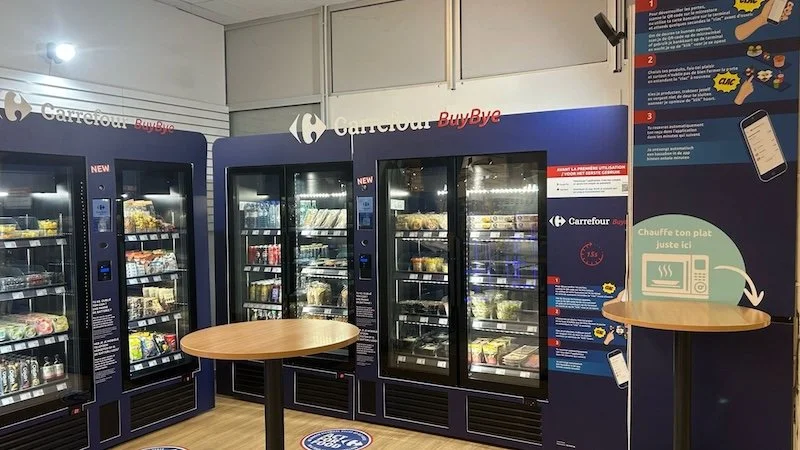Pay360 conference review: Payments crystal ball gazing session identifies personalisation, AI and open APIs
The future payment ecosystem in five years’ time and collaboration between its participants was debated by Swift, banks and FinTechs at the Pay360 trade show in London last week.
“Hyper personalisation” was identified as the key end result of all this pending innovation for retailers by ex-practitioner Natasha Zurnamer, CEO and Founder at Optty.
A former Stylefix employee and Head of Supplier Relations at Lux Group, Zurnamer warned on the final day of the event that: “Retailers will have to connect with multiple payment options in future and integrate them operationally.”
It is a challenge that can perhaps be met by using a payments orchestrator, discussed in a different conference session at Pay360, but Zurnamer warned: “You could end up with a horrible checkout and customer experience (CX), if integration is not done well.”
However, if connecting digital wallets, cards, mobile options, Pay by Bank functionality on modernised domestic payment infrastructures, cross-border options via the Swift network, future digital currencies, and so on is done well, then a whole vista of opportunities opens up.
Crucially, this will be helped by the ongoing rise of Open Banking and API usage as an easier means of achieving data exchange and connectivity. This will open up new data centric services as customer data is shared more freely in this more open and data centric environment.
All of this will aid the drive towards hyper personalisation, which Zurnamer argued will improve CX and liquidity oversight for retailers and indeed everyone in the payments ecosystem.
Liquidity and loans in hyper personalised environment
“In five years’ retailers will be using their own cash to lend to customers,” she predicted, taking advantage of the improved liquidity data and instant overview that retailers will have into their own position, and that of their customers participating in the Open Banking ecosystem.
According to the payments’ crystal ball gazing session moderator, Teresa Connors, from the show organisers, the Payments Association, an ex-banker herself: “This prospect is terrifying.” Due to the fact that it disintermediates the banks.
Her old colleague at NatWest, Jessica Richards, Head of Market Development, Payments, didn’t seem so worried.
She agreed that how CX is delivered will change, while highlighting the central role artificial intelligence (AI) will play in the future of all financial services and in crunching the data deluge that is amplifying year-on-year into useful information and services.
“AI is carrying out fraud as well however,” she warned, while adding “it can fight it too.”
A quantum of solace for AI?
“Quantum computing shouldn’t be forgotten either,” said Richards. “Indeed, AI will only reach its full potential when quantum computing comes. The so-called Q-Day is also coming.”
This is when the public key infrastructure (PKI) system, which relies on traditional computing to provide your one time password (OTP) and powers many other cybersecurity systems, will be broken by the increased power of QC to crack encryption.
New quantum cybersecurity techniques will therefore be needed in the future to protect payments, retailers, FS providers and indeed everyone.
Central Bank Digital Currencies (CBDCs) may also join the more consumer facing crypto options from Bitcoins and others in the envisaged future payment ecosystem. But the two key near-term trends of most importance identified by the panellists at Pay360, which included First Direct, Barclays and Swift representatives, were:
Open Banking: “This will get its TfL moment within the next five years,” said Richards, referring to how contactless payment technology in the UK only really took off when the hundreds of millions of passengers that regularly use London’s transport system could tap and go at the entry barrier.
National Payments Vision: The NPV in the UK is the phrase used to describe the ‘North Star’ roadmap that will act as the basis upon which to build the UK’s future national payments architecture (NPA) and its associated overlay services.
The envisaged rollout of new data-centric services will be partly driven by the adoption of the ISO 20022 messaging standard, which the cross-border Swift payments network will finally move to for all its participants in 2025.
The UK NPV was discussed on the opening day of the Pay360 conference by Joe Garner, an ex-retailer, who authored the UK Future of Payments Review last summer.
FinTechs
The development of modernised instant payment infrastructures domestically and globally will provide a platform for future services, but so too will the rise of FinTechs and of Open Banking and API usage, regardless of regulation, and of blockchain driven alternatives – Ripple, for instance, is a potential rival to Swift.
Incumbents face threats to their established position from FinTech newcomers but, equally, they Lack the funding and scale of those already in place. Increased collaboration is therefore the likely future end state.
A collaborative future is the core end game
According to Jenni Himberg-Wild, Head of Financial Institutions & Fintech Europe, International Corporate Banking (CIB), Barclays, there is an enormous and varied payments ecosystem.
“But in the middle is the ‘core’ – consisting of banks, Swift and card schemes – and these incumbents are protective of the core for security purposes,” she said.
“Others connect into the core and perhaps get the headlines for innovation [alluding to FinTechs –Ed]. But the core is modernising too. Entry and exit points to it will change [as open APIs proliferate –Ed] but the incumbents will remain.”
Fellow panellist, Adam Bealey, Head of UK & Ireland, Swift, agreed with that. But accepted that the core couldn’t be closed off to other participants.
“Interoperability at the core is key in future,” he said, which means accessing and integrating it in an easy way for FinTechs, but also pertains to interoperability across core platforms themselves, such as Swift to domestic infrastructures, or to any future CBDCs.
Ecosystems will have to collaborate and interoperate in the future as well.
Swift’s deal last autumn with Wise, whereby the organisation can act as an international rail, optimising payouts via the FinTech’s global network, is perhaps an illustration of the collaborative future that awaits everyone.
They also collaborated with Visa on business-to-business (B2B) payments.






























Continue reading…